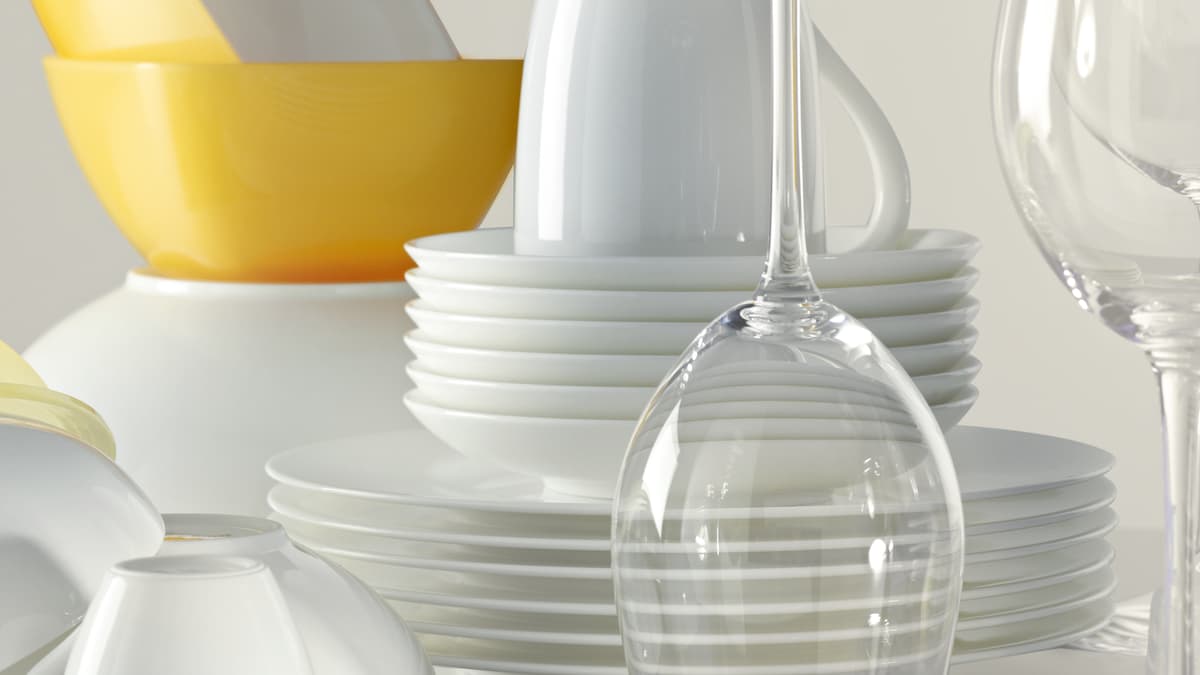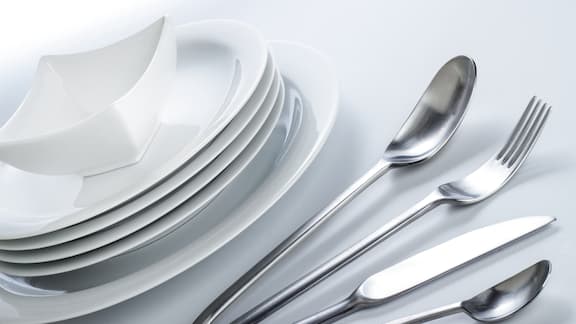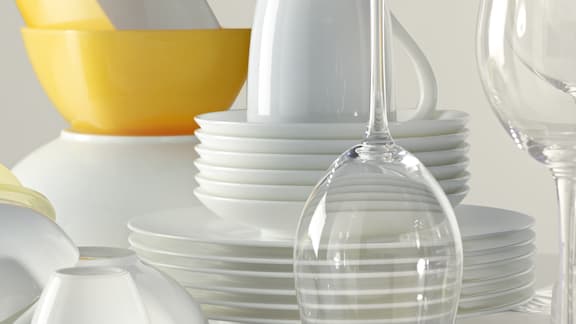
Get the most out of your dishwasher
Tips for using the dishwasher

1. Synergy
A dishwasher is most efficient when the water quality, detergent and dispensing quantity are optimised for the load items and the degree of soiling. The basic settings of the machine are therefore particularly important.
Ask your customer service representative for assistance.
2. Pre-wash
Large amounts of food residues should be removed before the dishes are loaded into the machine. Starchy foods such as potatoes are particularly problematic because they form a crust on the dishes which is difficult to remove.
Here it’s a good idea to quickly rinse the dishes with lukewarm (!) water.
3. Professional dishwasher detergent
Professional machines require professional detergents. Common household detergents normally dissolve too late because of the short programme times – meaning dishes are not cleaned.
Detergents should be stored in a dry, dark and cool place. Be sure to observe the use-by date!

4. Correct dispensing
If you notice soiling, you should check the dispensing recommendation again. This ensures that the required quantity of detergent can be optimised.
Adding more detergent is not always the right choice.
5. Water hardness
The water hardness affects what kind of detergents will be suitable and the amount to be dispensed. The best thing to do is ask for support from Customer Service in order to optimise your setup.
Water treatment systems help to keep the water free of limescale.
6. Load the dishwasher effectively
Load glasses at a slight angle to make sure that the water drains off and that they dry properly. Cutlery should be loaded pointing up. Large, heavy items should be loaded into the lower basket.
The baskets show you the direction in which dishes should be loaded, so the design is fairly intuitive.

7. Leave to cool
Dishes that are taken straight out of the dishwasher are sensitive because of the high temperature, so they break more easily.
Allow the dishes to cool down for a few minutes before putting them away.
8. Empty the dishwasher
Unload the machine from the bottom first in order to avoid water droplets falling onto the clean dishes. Never put away wet or moist dishes – water is a breeding ground for bacteria!
Don’t forget to wash your hands before tidying your dishes away!
9. Care for your machine
If available, the “Maintenance wash” programme should be run regularly (alternatively, use the “Intensive” or “Hygiene” programmes). This helps to break down grease, starch or protein build-up.
The minimum temperature for cleaning dishes is 70 degrees Celsius.
10. Check your machine carefully
Check the seals, filters, spray arms and basket wheels regularly for deposits and clean them.
Use a damp cloth or a brush to carefully remove dirt.
This article is part of our customer magazine "PROconcept". You can find a download area with our editions here.

